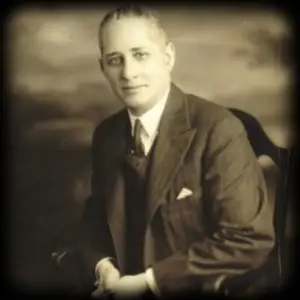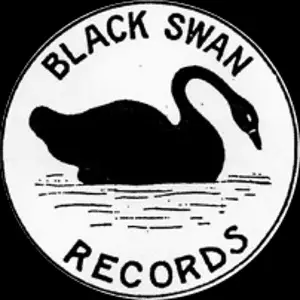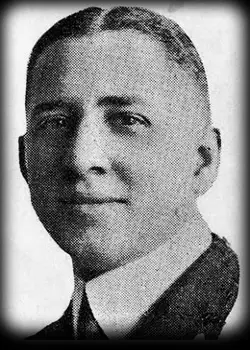HARRY PACE
 Before Mamie Smith‘s groundbreaking ‘Crazy Blues’ in 1920, there was virtually no serious African American music on record. Mamie’s seminal disc proved there was a demand for ‘race music‘, and all the leading record companies jumped on the bandwagon. However, only one label on the scene was wholly black-owned: Black Swan, named in honour of the esteemed classical singer Elizabeth Taylor Greenfield, was the brainchild of Harry Pace, who sought to promote black singers and musicians through a company that directly linked creative talent to its expanding market.
Before Mamie Smith‘s groundbreaking ‘Crazy Blues’ in 1920, there was virtually no serious African American music on record. Mamie’s seminal disc proved there was a demand for ‘race music‘, and all the leading record companies jumped on the bandwagon. However, only one label on the scene was wholly black-owned: Black Swan, named in honour of the esteemed classical singer Elizabeth Taylor Greenfield, was the brainchild of Harry Pace, who sought to promote black singers and musicians through a company that directly linked creative talent to its expanding market.

The Pace and Handy Music Company moved to New York City to continue their publishing activities, but in January 1921, the two men quarrelled over the direction the firm was taking, and Harry resigned. He leased an office near Times Square and set up the Black Swan record label to search for and develop the best singers and musicians in the African American population. He quickly recruited the talented pianist and arranger Fletcher Henderson and multi-instrumentalist composer William Grant Still, and put together a roster of musicians to back his young singers. Blues records by Divas like Ethel Waters , Trixie Smith and Alberta Hunter got the company off to a flying start, with discs like ‘Downhome Blues’ and ‘Oh Daddy’ selling hundreds of thousands of copies. Harry wanted to record all kinds of music, like glee-clubs, vaudeville singers, comedy ditties and all kinds of ‘coloured’ music, but it was sales generated by the Blues Divas that kept Black Swan going. They were soon shipping thousands of records a day from the Olympic pressing plant they bought in April 1922, and then launched the Red Label series to record operatic music, starting with an aria by the soprano Antoinette Garnes.
 The market was growing fast, but the large mainstream companies like Okeh, Columbia, Paramount and Victor were keen to get their share. Major Blues talents like Bessie Smith and Ma Rainey had arrived on the scene by 1923, and Black Swan’s financial position became tenuous as Harry put resources into diversifying his output when, in reality, only the Blues records were selling in good numbers. The company went bankrupt at the end of the year, so Harry was compelled to lease Black Swan’s master discs to Paramount in the spring of 1924. Despite a deal designed to keep the Black Swan name alive, it was soon assimilated into the major label as Paramount’s 12100 series.
The market was growing fast, but the large mainstream companies like Okeh, Columbia, Paramount and Victor were keen to get their share. Major Blues talents like Bessie Smith and Ma Rainey had arrived on the scene by 1923, and Black Swan’s financial position became tenuous as Harry put resources into diversifying his output when, in reality, only the Blues records were selling in good numbers. The company went bankrupt at the end of the year, so Harry was compelled to lease Black Swan’s master discs to Paramount in the spring of 1924. Despite a deal designed to keep the Black Swan name alive, it was soon assimilated into the major label as Paramount’s 12100 series.
Undaunted by this setback, Harry set up another wholly African American owned business, Northeastern Life Insurance, which went on to become a large corporation. He took time out to study for a Law Degree in Chicago, and set up his practice there in 1942, but sadly Harry passed away the following year, before his 60th Birthday.
